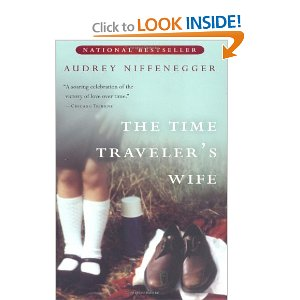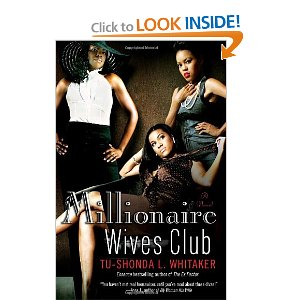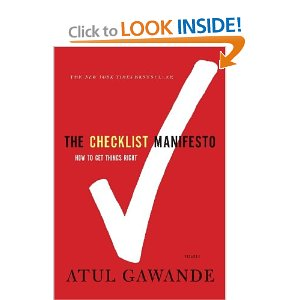I did not reach my goal of reading 100 books in the 2012 calendar year, but I did get quite close. I finished out 2012 having read 61 books and I think that is pretty damned impressive!
Before I set any goals for 2013, I do want to post reviews and recaps of what I have read in this year. There were some really awesome reads that I can’t help but share again. According to my Goodreads profile which I am using to track my progress, I have quite a few selections that I have not reviewed, so this post will spill over and become two or more posts.
Enjoy and please comment and let me know how you did on your reading this year and if you plan to set any reading goals in the coming year. All books pictures and links provided are from Amazon, where I am an affiliate, but please support the book seller of your choice.

Some Sing, Some Cry
This book is too long! It is so hard to review this book beyond that. This is an historical fiction but it is written in heavy dialect and that makes it a little exhausting. I did listen to this through my Audible subscription and I really enjoyed the speech and singing of the narrator, but even she can only carry this book so far. It’s just too long. It follows several generations of a mulatto family, but I can’t tell you the point or outcome of this book. It’s just too long and not interesting enough to pull me to the end. I gave up on it. Maybe I’ll revisit it again in the far away future. It’s just too long.
The Time Traveler’s Wife

I’ve seen the movie and the concept intrigued me so I really wanted to read the book. Having seen the movie prior and listening to the Audible version were definite benefits to me going into this. The constant time and character jumps would be very confusing reading this as a print book. If it were not for the male/female voice changes in the audio book, I would have been lost. Outside that, this is still a really good book. There are some differences between the book and movie but this is the one clear instance where I can really say what was cut out of the movie version should have also been cut out of the print version. I hope the editor(s) paid attention. I recommend this book for a limited audience. Although the movie turned this read into more of a romance, this really is a sci-fi book (in my opinion). And the writing style makes it a strain for the attention span of most. If nothing else, this is one read that should definitely be listened to.
The Millionaire Wives Club

I love a good reality show and I love the occasional display of drama but this book was a bit too much for me. It was drama overload and had no thread of hope what so ever, not that it had the intention of being so. What really depressed me more than anything was the notion that if we are really lucky in life, when we turn away from the money-chasing, we will end up with a good man that will save us with his goodness and also happen to be rich. We keep re-telling the Pretty Woman story in different ways re-enforcing it as the way to truly escape from the hardships of our lives. It’s played out. The author clearly is a story teller. I would like to see what else she could do with her talent. If nothing else, she is on her way to producing/scripting some good reality television (I am not foolish enough to believe that all reality television is actually reality).
Steve Jobs

This book just couldn’t end soon enough. Not thinking, I picked this book up to read just before the 1 year anniversary of his death so in addition to the book, I’ve been listening to a lot of the tech pundits rehashing the life of Steve. I do think Steve Jobs did great things and had an interesting way of processing things but I cannot ignore a few things.
1. Steve Jobs stole ideas and took credit for the work of his friends and employees.
2. Steve Jobs enjoyed letting people know the lack of value they brought to his life. This book continued that.
3. Steve Jobs always thought he would die young so its no surprise that he procrastinated when told he had cancer. Steve wanted to die a martyr and, in a way, he got his wish.
4. Steve Jobs wanted to make money just as much as he wanted to make good products. He got over on a lot of people with this false pretense of not wanting to be rich. “Let’s move the Porsche so no one thinks we are just out for money.”—In the book!
This is not a book. This is Steve Jobs’ last chance to get the last word on all the issues, circumstances and activities of his life. This was his chance to tell everyone they were wrong and it was his chance to list out all the people he rejected during his life just so they don’t forget posthumously. He claims to have done this so his kids would know him, but he was never a family person so I don’t see why he would think his children would get anything out of this other than learning how to be absolutely horrible people.
Now, I would never deny that Steve Jobs had talent, but it is now more clear that his talent lay in rallying the troops and getting them to do their best work. His talent lay in manipulating the situation and his talent lay in selling. He was not an engineer. He was not a creator. But he was a leader.
It’s hard to see this book outside of its subject because it’s clear that Isaacson just wrote what Steve told him to. The book was contradictory as Steve was and it was very one sided. I think Isaacson got caught up in that reality distortion field that he mentions so much, which I only see as an excuse for giving in to the charlatan that was Steve Jobs.
This book is much, much too long--about 400 pages longer than it really needed to be. I wouldn’t really recommend this book especially considering how Steve’s rock star status may negatively influence others.
The Checklist Manifesto

I am always looking for ways to improve my working life, both how I work alone and how I work with co-workers. I started reading this book back when I was working with a Japanese company and my manager kept forcing me to send out these reminder checklists outlining what everyone on my project was supposed to get done that week or that day in some cases.
Now, I love a good checklist. And after incorporating a wedding checklist into my daily planner, I love them even more. They can be very useful when the audience is receptive and willing to use them. This was the biggest problem I was facing.
Reading this book gave me a more purposeful view of using checklists but also gave some inspiration on getting wide adoption of using checklists. I am no longer working with the Japanese company, but I will carry the lessons from this book on to other projects that I am involved with. And if nothing else, I will be using them to improve my own productivity.
On the downside, I found this book too heavily geared towards the medical field. I was willing to overlook this as the author is a doctor, but then he started getting too heavily into construction. He really could have branched out and given a more diverse set of usage examples. And considering the lack of diversity in the examples, the book did seem to get really repetitive.
